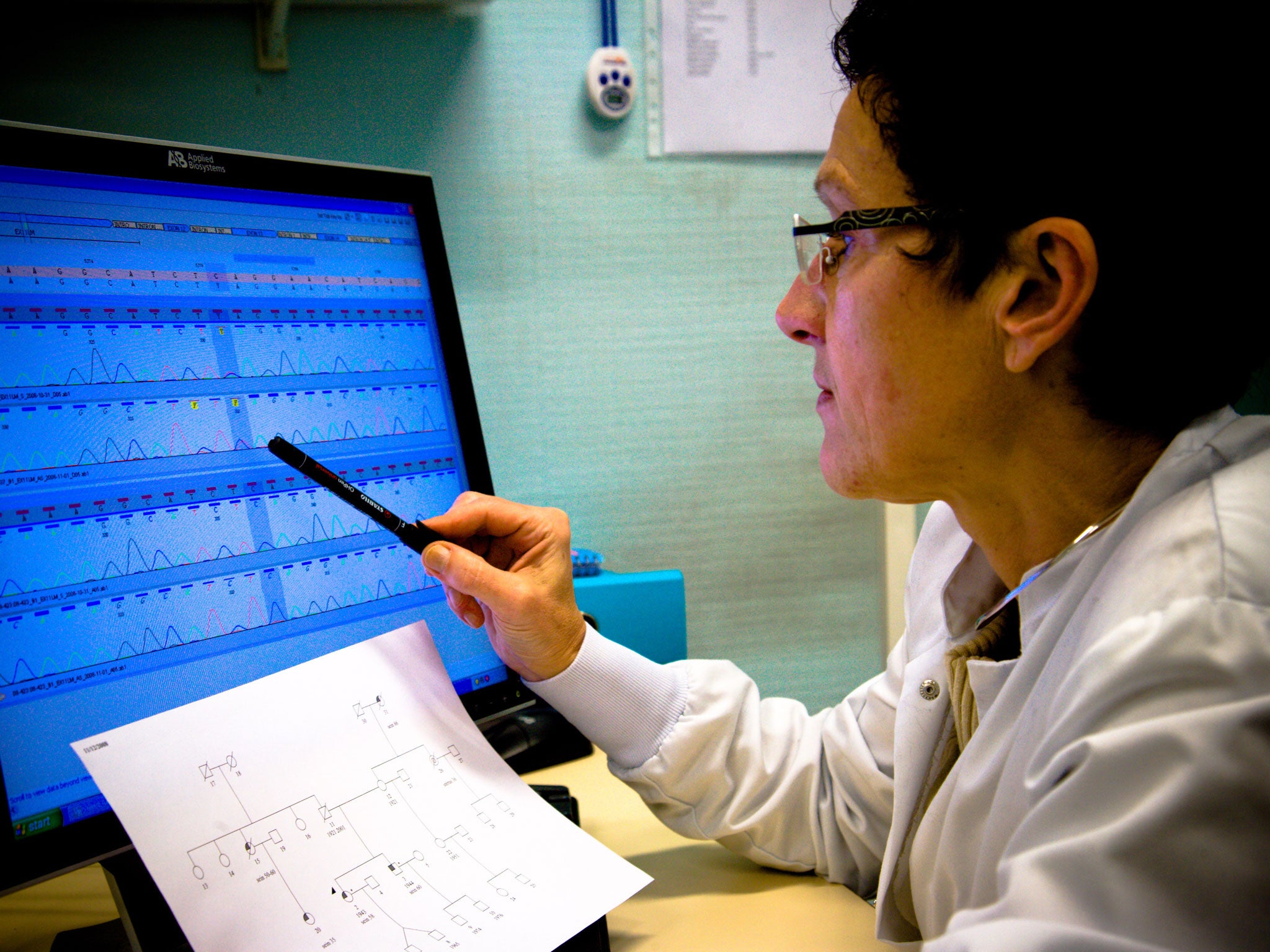Women’s lives at risk due to being unaware of ‘most ovarian cancer symptoms’
Many women are oblivious bloating is a key symptom of ovarian cancer

Women’s lives are being placed at risk by people’s ignorance of ovarian cancer symptoms, a new study has suggested.
The report, conducted by a charity called Target Ovarian Cancer, discovered many women do not realise bloating is a key symptom of ovarian cancer.
Researchers found only 17 per cent of women say they would book an urgent GP appointment within the space of a week if they were suffering continuous bloating.
The study also found the Covid crisis has compounded the situation due to women wrongly assuming their GP is only seeing patients in urgent need while not understanding their own symptoms are urgent.
Every day 11 women die from ovarian cancer, with two-thirds diagnosed with the disease once the cancer has already spread, which makes it more difficult to treat and increases the likelihood of it returning.
If doctors are able to diagnose ovarian cancer at the earliest stage, nine out of ten women will go onto live for half a decade or longer, but around one in ten survive if it is only caught at stage IV, the most advanced stage.
Alexandra Holden, director of Target Ovarian Cancer, told The Independent “huge numbers” of women are not aware bloating is a symptom.
She added: “It is hugely concerning. The majority of women diagnosed with ovarian cancer are over 50 so there is a lot going on with their bodies – they may presume any unusual symptoms are related to the menopause.
“And that time of life is very busy, so they may potentially be caring for an elderly relative or doing childcare, and then dealing with work.”
Ms Holden said it was also important for GPs to quickly detect symptoms of ovarian cancer – noting there was a “joint responsibility” of both patients and doctors.
“We want GPs to eliminate ovarian cancer earlier in on their diagnosis options rather than looking at it at the last resort,” she added.
Each year, there are roughly 7,500 new ovarian cancer cases in the UK – with around 4,000 deaths taking place annually.
Marie Foord was diagnosed with ovarian cancer last year after starting to have bloating and bowel symptoms in April.
The 49-year-old, who is from Hastings, said: “Nobody I know would associate bloating with ovarian cancer, and in fact, it never crossed my mind before I was diagnosed. I want people to take it seriously and give your GP a call if you’re concerned.
“This pandemic can make us all nervous about going to the GP, but our health is so important. My GP was amazing and supportive throughout my diagnosis.”
Ms Foord has finished her chemotherapy treatment and had surgery and is now feeling well.
Dr Alison Wint, clinical lead for cancer at NHS Bristol, North Somerset & South Gloucestershire, said: “Cancer is not going away just because of Covid-19. GPs want to know.
“In fact, it’s as important as ever to come forward with urgent cancer symptoms such as persistent bloating, feeling full quickly or loss of appetite, tummy pain, needing to wee more often or more urgently, change in bowel habits or weight loss. Take it seriously and talk to your GP.”
Ovarian cancer is one of the most common types of cancer in women – with the NHS saying around half of women with the disease will live for at least five years after diagnosis, while around one in three will live at least a decade.
Annwen Jones, Target Ovarian Cancer’s chief executive, noted the Covid crisis can make it difficult for people to put themselves “first”.
“And people are worried about putting pressure on the NHS,” she added. “But getting ovarian cancer symptoms checked out promptly and starting treatment quickly makes all the difference.”
Subscribe to Independent Premium to bookmark this article
Want to bookmark your favourite articles and stories to read or reference later? Start your Independent Premium subscription today.

Join our commenting forum
Join thought-provoking conversations, follow other Independent readers and see their replies